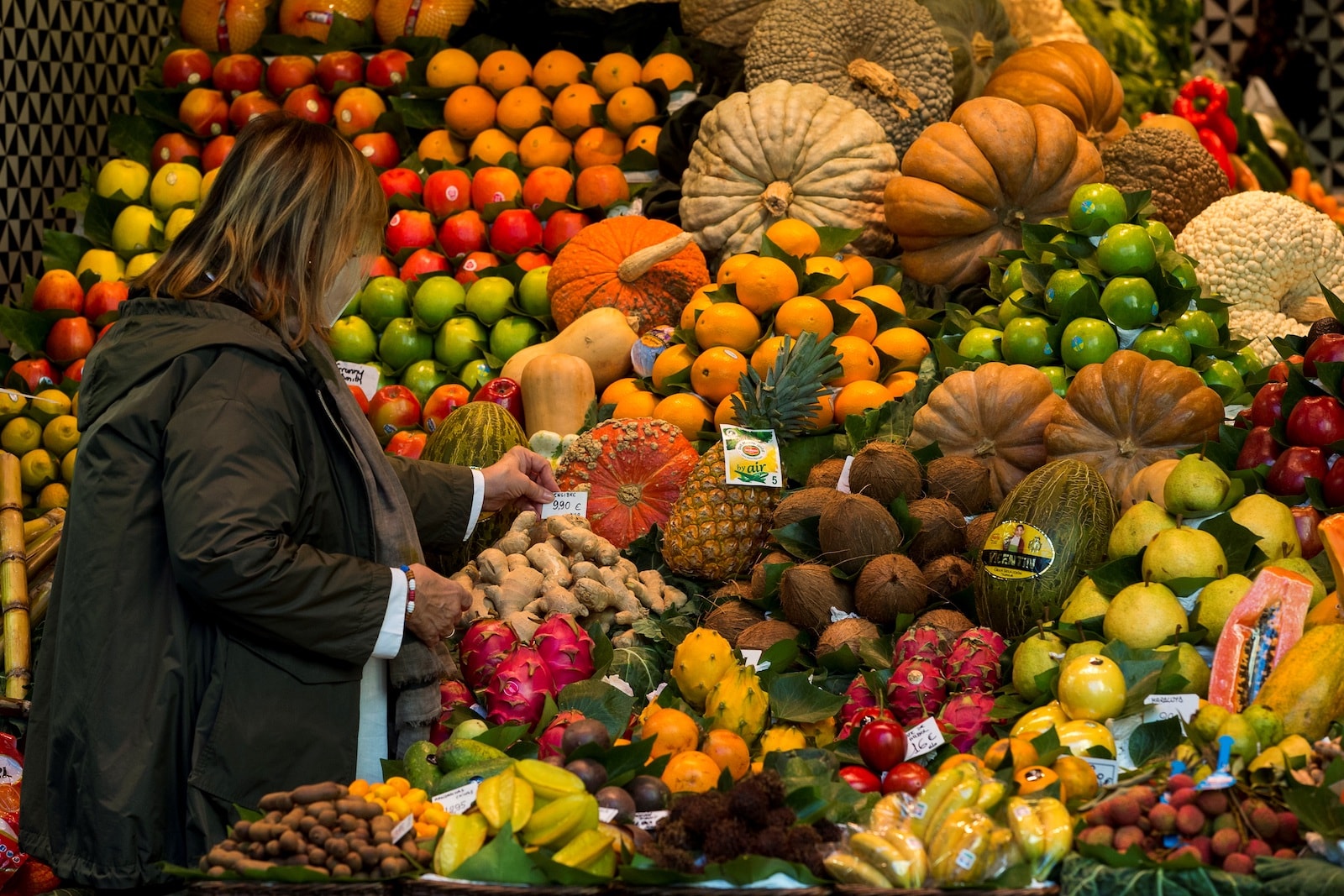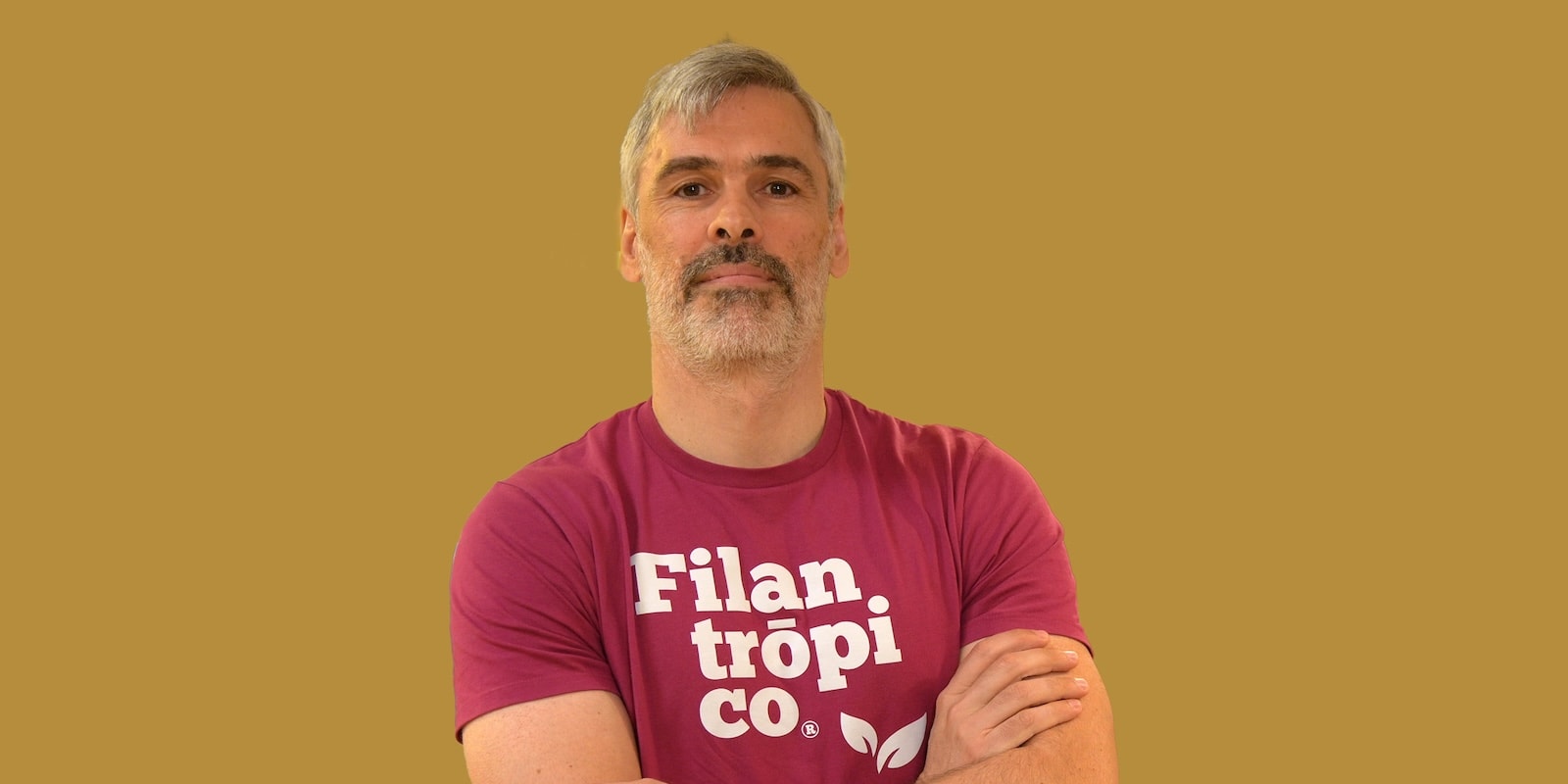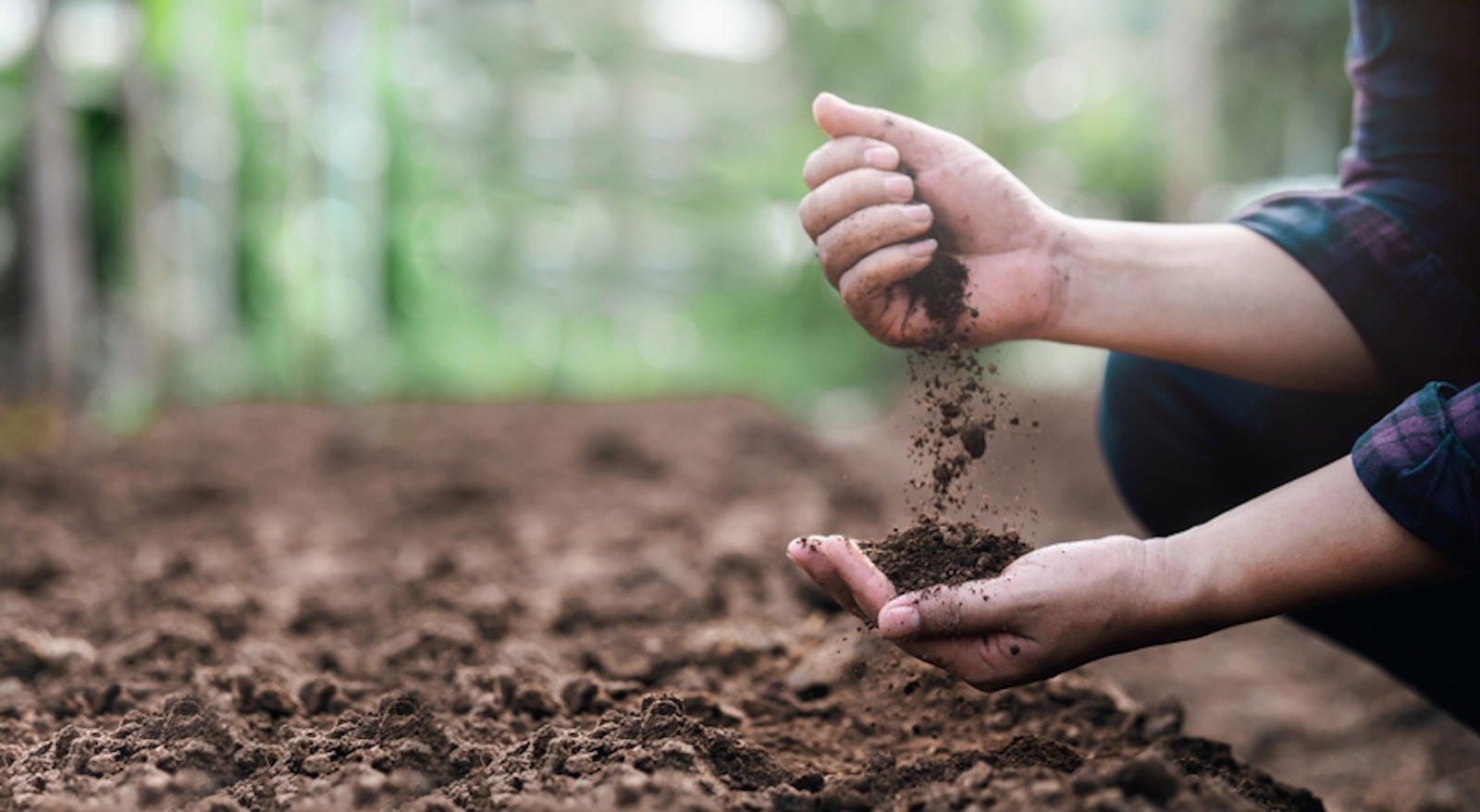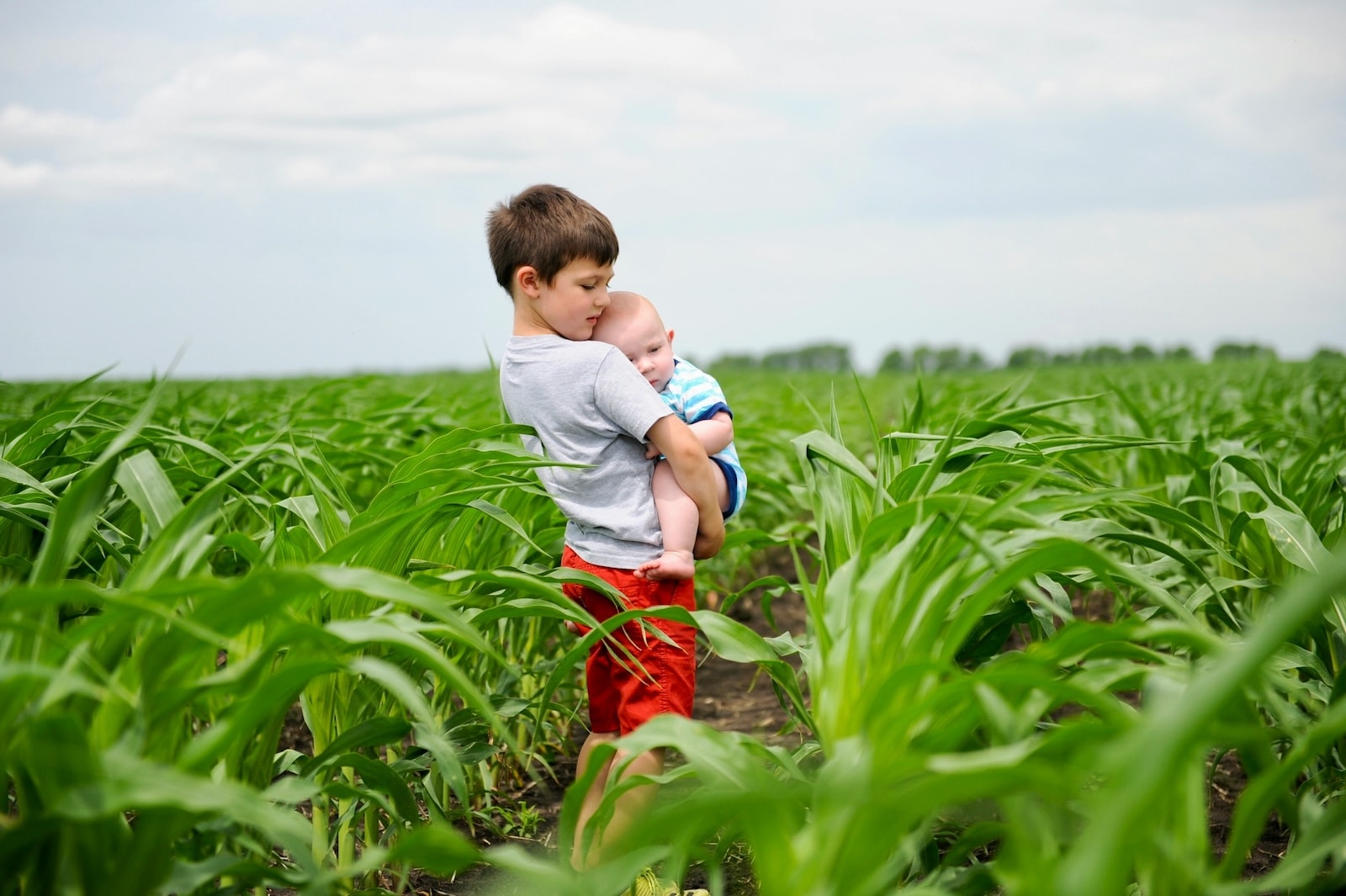Tuesday, February 14, 2023
Photo: Quique García
New trends in food production and consumption increasingly seek to reduce the impact the food industry has on the environment through sustainable and planet-friendly models
In this world of constant change, population growth, a scarcity of resources, and production costs pose new formulas to address the balance between mass production and the planet’s sustainable development. The food industry will have to produce approximately 50% more food by 2050, according to UN data. In Spain, this is one of the sectors that has the greatest impact on the environment: between 1960 and 2010, the carbon footprint of the food industry in our country went from 1.5 to 3.6 tons of carbon dioxide per capita per year.
What will the food trend of 2023 be? Is a sustainable food industry possible? Zero food waste and consuming local products will be the major trends of the year. The future is bright. In fact, among the more than 30,000 companies in the sector, zero-kilometer stores and restaurants have become widespread, seeking to offset this impact by partnering with local suppliers.
To learn how the links in this production chain work, the challenges for the future and their impact in Spain, we’ve come up with a gourmet menu based on a different type of consumption that’s more sustainable and respectful of local areas.
Appetizers - The concept of 'slow food'
What would a menu be without appetizers? If we take the diner’s first contact with the product and use it to look at the concept of sustainable food, the question is obvious: How did the zero kilometer idea in cuisine come up?
Its origin dates back to 1989, when Italian sociologist Carlo Petrini launched a global movement in defense of regional traditions, good, clean, and fair food, and a slower pace of life, as opposed to the consumption model promoted by the fast-food industry. From its founding to the present day, 'Slow Food', as this movement is called, has spread its primary mission to 160 countries: protecting biodiversity through gastronomy.
The movement proposes reducing the distance between producers and sales and consumer establishments to a radius of less than 100 kilometers, with the aim of minimizing the effects that large-scale industry has on the planet: soil erosion, water pollution, or habitat loss for wild species, among others. "A local food production system combines healthy and nutritious food with social responsibility, as well as prioritizing ecosystems, reducing chemicals, and protecting traditional techniques," stated Marta Messa, secretary general of the movement, and she stresses that small-scale farming provides fresher products, protects local fauna, and travels fewer kilometers.
In the slow food movement, raw materials are responsibly, sustainably, and ecologically produced, and the aim is to reduce the number of intermediaries between the farm and the table, in order to minimize the carbon footprint.
First course - Organic production
In the slow food movement, raw materials are sourced from responsible, sustainable, and ecological production, where small-scale economy is prioritized over the wholesale industry. This premise seeks to reduce the number of intermediaries—if possible to one—from the farmer's field to the diner's table. It’s based on a logical equation: the fewer the number of intermediaries, the shorter the distance with less transportation needed, meaning that less CO2 is emitted into the environment. Proximity trade is indeed less polluting.
"The carbon footprint generated by my produce sales is much smaller if I sell my food less than 100 kilometers away," said León Fernández, a partner at 'Huerto Vega del Tajuña', a project in the Chinchón region that fights against the "more industrialized" vegetable farming in the area. "If you compare our plot with one of the plots next door, there’s more life and biodiversity on our farm, and the grass grows more," summarized the farmer.
Another example of sustainable production is located near Ávila, in the municipality of Riofrío. With an area of 16,000 square meters, 'La Granja de Ibai' produces certified organic eggs from hens fed with a natural type of feed that’s free of GMOs, hormones, dyes, and pesticides. The owner, David Jiménez, also mentioned the animal welfare of his 3,000 hens, with "six animals per square meter," unlike other farms where the number of hens in the same space is around nine or ten.
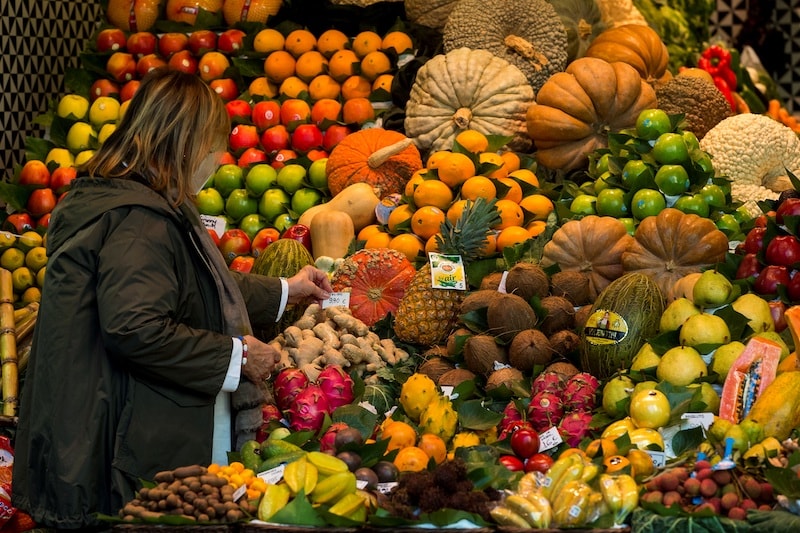
Photo: Quique García
Second course - Restaurants and stores
Here we’ll look at the role played by local stores and restaurants, two choices for enjoying some food, whether at the table of a bistro or on the stove at home. The first option includes a group of taverns scattered throughout Spain that have the 'Slow Food' seal, which guarantees food traceability and a positive impact.
In the heart of Valencia, 'La Cantina de Ruzafa' is the passion project undertaken five years ago by manager Jaume Vilà and chef Eva Davó. Their philosophy reclaims "grandmother cuisine," and at the establishment they promote the 'Alianza de Cocineros de la Comunidad Valenciana', with the aim of building support networks for farmers in the area and protecting local varieties.
As Davó explains, the relationship of "trust and mutual support" with the producers is different from the norm, since it’s the restaurant that sets a maximum price, which the supplier adjusts to the products it has in the field that day, thus guaranteeing their freshness and quality. Not knowing what foods you’ll receive each day inspires creativity in the kitchen. In addition, throughout the week they offer an 'Artisan Menu' made with local products at only ten euros, in order to "democratize good food" so that farmers work under fair conditions, fishing is sustainable, and more people can connect with kilometer 0.
Moving on to the town of Alloza, in the province of Teruel, we find 'La Ojinegra', which has been operating since 2010 as a "benchmark in the circular economy" of the region, by working with local products, generating employment, attracting tourism, and carrying out sustainable research characterized by "simplicity." The owner, Belén Soler, pays special attention to the seasonality of their products, organic farming, paying farmers fair wages, and claiming a "regional identity" through food. In addition, they're "reservation only" to avoid food waste, and complement their work in the kitchen with training courses, assistance to entrepreneurs, and informative talks on organic rural cuisine.
However, not all its production is aimed at gastronomy. Its distribution also reaches small and medium-sized stores, which sell organic products directly to the consumer. In Madrid, the Farmers’ Market gathers every Sunday in three locations: Planetario, the first and third Sunday of each month; Alcobendas, the second; and Valdebebas, the fourth. 36 local traders come together to offer fruit, vegetables, patties, farm meats, and homemade breads and pastries to more than a thousand residents. "These foods remind us of food from the old days, in flavor, aroma, and quality," said the market's director, José Manuel Jurado.
Nine out of ten consumers are aware that their eating habits have an impact on the planet, and 88% of them are concerned about sustainability.
Desserts - The more conscientious diner
A meal can’t end without a good dessert, and neither can value-based initiatives exist without the figure of the consumer.
The change is already apparent: When shopping, 93% of consumers are aware that their eating habits have a greater or lesser environmental impact, according to the 2021 Survey on Purchasing and Consumption Habits by the Mesa de Participación Asociaciones de Consumidores (MPAC). 88% are concerned about sustainability, and 86% would like product labels to indicate whether the food is sustainable. However, the price of organic products is still an unresolved issue, as six out of ten consumers find it difficult to bear the cost.
¿Te ha parecido interesante?


